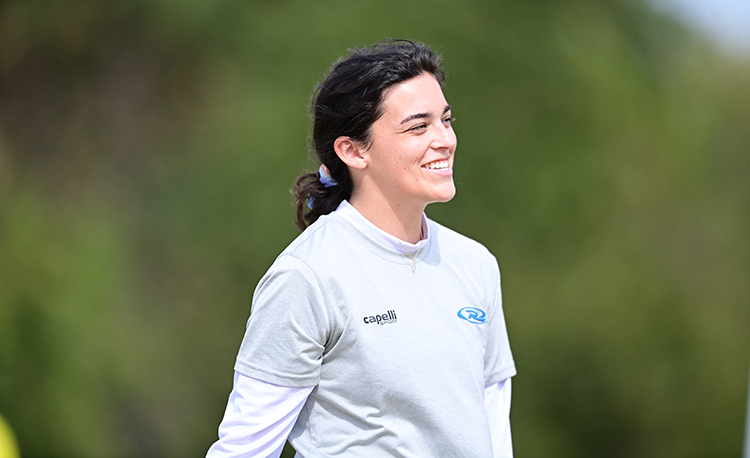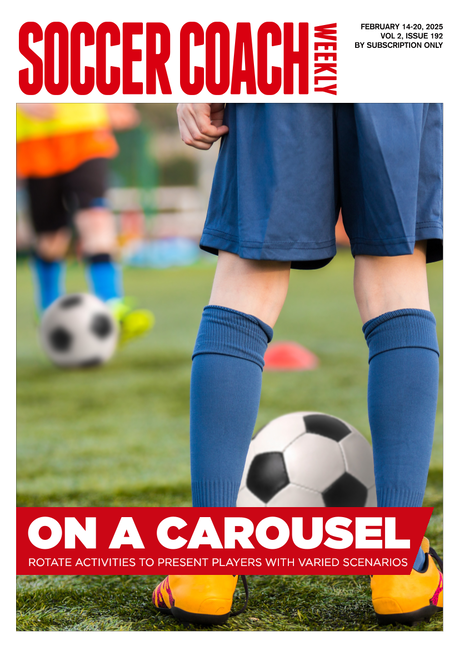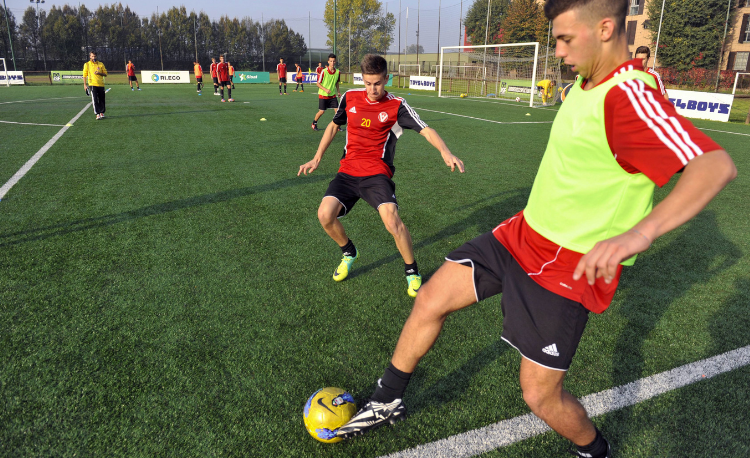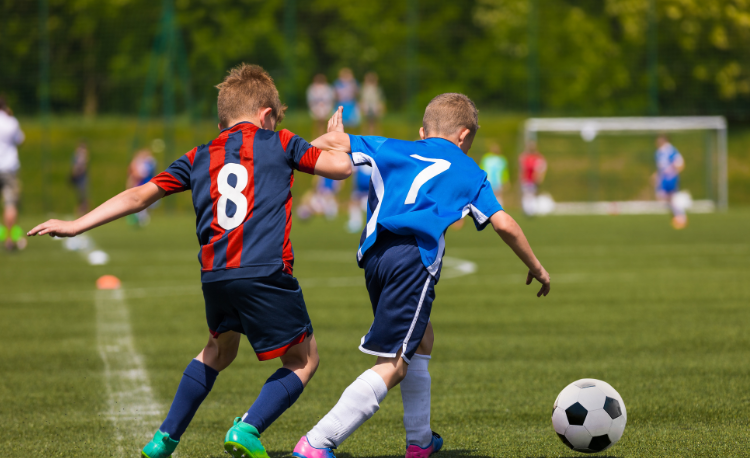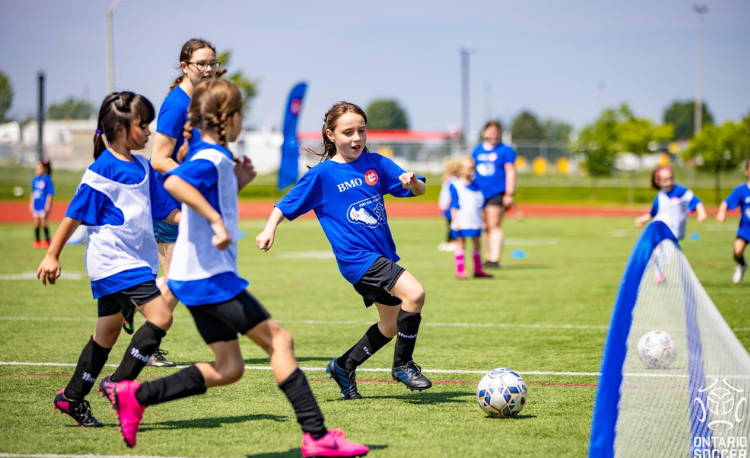Katie Smith: 'They're people first, and players second'
A coach of teams at various age groups and levels, it’s fair to say Katie Smith is a busy woman. But, she tells Steph Fairbairn, her philosophy remains constant
Katie Smith, based in Memphis, Tennessee, started coaching straight out of high school, alongside playing at community college.
Now, in a situation that might sound familiar to a lot of coaches trying to make their way, Katie juggles numerous roles.
She coaches at Collierville High School and Collierville Middle School, has two youth teams at Lobos Rush, is a volunteer assistant at Northwest Mississippi Community College and also works with USL 2 club Tri-Cities FC. Katie is also a full-time student and, this semester, a student teacher.
SCW caught up with Katie at the United Soccer Coaches convention in January to talk about what is similar and different across her roles, her person-over-player philosophy, and some of the challenges she has faced…
SCW: In the different environments you work in, what are some of the similarities in terms of the coaching you deliver? And what are some of the differences?
KS: "In terms of middle-school girls and boys, there are a lot of similarities. They are at the same kind of levels, in terms of where they are at in the game, learning the basics.
"When we step into the higher levels, like community college, and especially USL 2, there’s such a vast difference.
"I coach community college women’s and men’s USL 2, which is just vastly different. I don’t think there’s any similarities I could point out off the top of my head.
"Being in these different spaces, and being able to see the similarities and differences, has just helped me grow as a coach."
SCW: How do you change in terms of who you are as a coach, how you speak to the players, and your behaviors, across those environments?
KS: "My coaching philosophy is person-over-player. These are people first and players second, and players have bad days. They have things that are going on. So you want practice to be the best part of their day.
"While I firmly believe in holding people accountable and having a level of expectation, and making sure the players are hitting that, I think it’s really important to understand they are not going to be their best every day, and that’s okay.
"It’s important that, as a coach, you have your value system. No matter what team you are with, what other coaches you are coaching with, that stays the same.
"Players have things going on. You want practice to be the best part of their day..."
"I like to think my style of coaching really doesn’t change based on which team I’m with.
"For the older kids, you can break things down a bit more, you can give them a bit more information. But in terms of my style, how I speak to the players and how I interact with them, it’s very similar across the board. And I think that’s how it should be."
SCW: When you talk about philosophy, is that something you actively sat down and said, ‘here’s how I want to coach’? Or is it something that came over time?
KS: "When I realized this was the path I wanted to take, I was very intentional in figuring out who I was as a head coach, and what I believed in, in terms of my style of play.
"Do I want to press high? Do I want to drop back? Do I want to use the width? Do I want to stay compact? I took it upon myself to sit down and say, before I take over a program, I need to figure these things out.
"When I got offered my first coaching job - this was in March, I started in May - I took pretty much the whole of April and figured out: ’Okay, what do I want my players to get from me? When my players are looking 20 years from now, in terms of what I did for them as a coach or how I helped them as a person, what do I want them to remember?’.
"I want them to remember that I cared about them as a person first, that I was trying to help them develop the skills they will need not just for soccer, but also in life. That’s how the person-over-player thing came into fruition.
"Alongside my style of play. I sat down and thought, intentionally, about every single aspect of the game. Because when you run a program, if you are not sold on your direction and the things you want to do, how can you expect the players to buy into that?
"I would encourage any young coach that’s stepping into a head coaching role to figure those things out, because everything you do is dictated on those beliefs."
SCW: There’s so much education out there technically and tactically. Do you think we should be devoting just as much of our time to understanding how players learn and the things they are going through?
KS: "Absolutely. I’ve been very encouraged in recent years that there has been such a push for mental health advocacy, for understanding your players, and for remembering that they are people.
"To me, that’s even more important than any tactical or technical thing you could do. If I have all this technical knowledge, but I don’t know how to relate to my players, it means nothing.
"Building those relationships is the most important thing you can do in terms of having success on the field, but also having success off it in life for your players, which should be your number one focus.
"We’re not just coaching them for a game, we’re coaching them for life, especially as a high-school coach. I see these kids sometimes more than their parents do.
"It’s important to have that understanding of the role you play in their lives, that you are a very significant influence on them, and ensuring you learn how to connect with them, and how to understand them and the needs they have.
"On top of all that is the mental health aspect. If we are not cautious and knowledgeable on the warning signs, we are going to continue losing these players at these alarming rates, which is so tragic and so unfortunate.
"Any coach not focusing on these aspects as much as the tactical aspects are doing their players a very big disservice.”
SCW: What are some of the challenges you have faced?
KS: "The biggest struggle I have faced, as a younger female coach, is actually the parental side of it. I’ve never had an issue with kids respecting me or understanding me, because I build those relationships.
"But, unfortunately, there is a stigma around young coaches and female coaches. Those are two things I can’t really help!
"My biggest mentor is Colton Bryant. He is a phenomenal person, I look up to him a lot..."
"My way to combat that is to gain respect by being prepared - when the kids show up, everything is on the field, ready to go. Our practices move from one thing to the next.
"Then [it’s about] having that level of professionalism when parents are coming to me, being able to answer questions and have those conversations with them.
"On gender discrimination, I do think that’s something we are talking about and it is getting better.
"I think it’s important we continue to have these conversations and continue to support each other and encourage each other."
SCW: How important has it been to have had a network of people that have had similar experiences, to be able to talk to about things?
KS: "I think having a network and having mentors is huge. I have been so blessed by some of the people that have taken the time and really invested in me as a coach and as a person.
"My biggest mentor is Colton Bryant. He’s the assistant coach at Lamar University right now, and he has helped me every single step of the way in terms of coaching and in terms of being a better person.
"He is a phenomenal person, coach and mentor. I look up to him a lot. Having people like that has not just changed the course of my coaching career, but also changed my life and it’s made me a better person.
"I think, also, when you have those people, you can bounce ideas off of them. You can get advice from them.
"But I think the biggest piece is accountability. When you are doing something where you feel like, ’okay, if I screw up, someone is going to be there to hold me accountable’, that’s huge."
Related Files
Newsletter Sign Up
Coaches Testimonials

Gerald Kearney, Downtown Las Vegas Soccer Club

Paul Butler, Florida, USA

Rick Shields, Springboro, USA

Tony Green, Pierrefonds Titans, Quebec, Canada
Subscribe Today
Discover the simple way to become a more effective, more successful soccer coach
In a recent survey 89% of subscribers said Soccer Coach Weekly makes them more confident, 91% said Soccer Coach Weekly makes them a more effective coach and 93% said Soccer Coach Weekly makes them more inspired.
*includes 3 coaching manuals
Get Weekly Inspiration
All the latest techniques and approaches
Soccer Coach Weekly offers proven and easy to use soccer drills, coaching sessions, practice plans, small-sided games, warm-ups, training tips and advice.
We've been at the cutting edge of soccer coaching since we launched in 2007, creating resources for the grassroots youth coach, following best practice from around the world and insights from the professional game.
